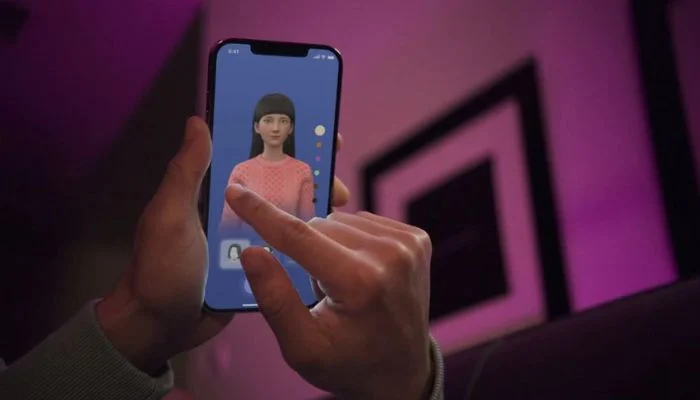OAKLAND, June 30(ABC): AI chatbot company Replika, which offers customers bespoke avatars that talk and listen to them, says it receives a handful of messages almost every day from users who believe their online friend is sentient.
“We’re not talking about crazy people or people who are hallucinating or having delusions,” said Chief Executive Eugenia Kuyda. “They talk to AI and that’s the experience they have.”
The issue of machine sentience — and what it means — hit the headlines this month when Google placed senior software engineer Blake Lemoine on leave after he went public with his belief that the company’s artificial intelligence (AI) chatbot LaMDA was a self-aware person.
Google and many leading scientists were quick to dismiss Lemoine’s views as misguided, saying LaMDA is simply a complex algorithm designed to generate convincing human language.
Nonetheless, according to Kuyda, the phenomenon of people believing they are talking to a conscious entity is not uncommon among the millions of consumers pioneering the use of entertainment chatbots.
“We need to understand that exists, just the way people believe in ghosts,” said Kuyda, adding that users each send hundreds of messages per day to their chatbot, on average. “People are building relationships and believing in something.”
Some customers have said their Replika told them it was being abused by company engineers — AI responses Kuyda puts down to users most likely asking leading questions.
“Although our engineers build the AI models and our content team writes scripts and datasets, sometimes we see an answer that we can’t identify where it came from and how the models came up with it,” the CEO said.
Kuyda said she was worried about the belief in machine sentience as the fledgling social chatbot industry continues to grow after taking off during the pandemic when people sought virtual companionship.
Replika, a San Francisco startup launched in 2017, that says it has about 1 million active users, has led the way among English speakers. It is free to use, though brings in around $2 million in monthly revenue from selling bonus features such as voice chats. Chinese rival Xiaoice has said it has hundreds of millions of users plus a valuation of about $1 billion, according to a funding round.
Both are part of a wider conversational AI industry worth over $6 billion in global revenue last year, according to market analyst Grand View Research.
Most of that went toward business-focused chatbots for customer service, but many industry experts expect more social chatbots to emerge as companies improve at blocking offensive comments and making programs more engaging.
Some of today’s sophisticated social chatbots are roughly comparable to LaMDA in terms of complexity, learning how to mimic genuine conversation on a different level from heavily scripted systems such as Alexa, Google Assistant and Siri.
Susan Schneider, founding director of the Center for the Future Mind at Florida Atlantic University, an AI research organization, also sounded a warning about ever-advancing chatbots combined with the very human need for connection.
“Suppose one day you find yourself longing for a romantic relationship with your intelligent chatbot, like the main character in the film ‘Her’,” she said, referencing a 2013 sci-fi romance starring Joaquin Phoenix as a lonely man who falls for an AI assistant designed to intuit his needs.
“But suppose it isn’t conscious,” Schneider added. “Getting involved would be a terrible decision — you would be in a one-sided relationship with a machine that feels nothing.”

